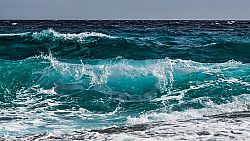

The Environment Agency has published its Blue Space Forum: Health and Inequalities project.
They have published the research and analysis to understand how people use blue space for their health and wellbeing, and the experience of people living with barriers to accessing its benefits.
In 2022 and 2023, the Environment Agency, together with the following project partners, led the Blue Space Forum project:
The aim was to gather the lived experiences of people who use blue space to improve their health and wellbeing, as well as those living with barriers to accessing blue space and its benefits.
Blue space refers to our water environments:
Being in, on, or next to water can be good for us as its contributes to physical, social and psychological health benefits.
Exercises like swimming, paddling, walking by a riverside or surfing, along with sports involving water, can keep us physically active. Being in blue spaces is good for our mental health too, often associated with a sense of wellbeing, improved mood, and feelings of respite and restoration.
The link between blue space and health can be directly evidenced in Swim England's Value of Swimming report, estimating that the positive impact of weekly swimming can save the NHS and our social care system more than £357 million per year (2019), and contributes £1.2 billion worth of social value through the improved life satisfaction of swimmers (2023).
The benefits of blue space for health and wellbeing are not equally accessible to everyone:
Safe, affordable access to blue space is often therefore inaccessible to those people who could benefit the most.
The government is committed to everyone living within 15 minutes' walk of a green or blue space in their Environmental Improvement Plan.
The Blue Space Forum: Health and Inequalities project asked people:
The findings give the lived experiences and perspective of:
For more information on this subject, see: